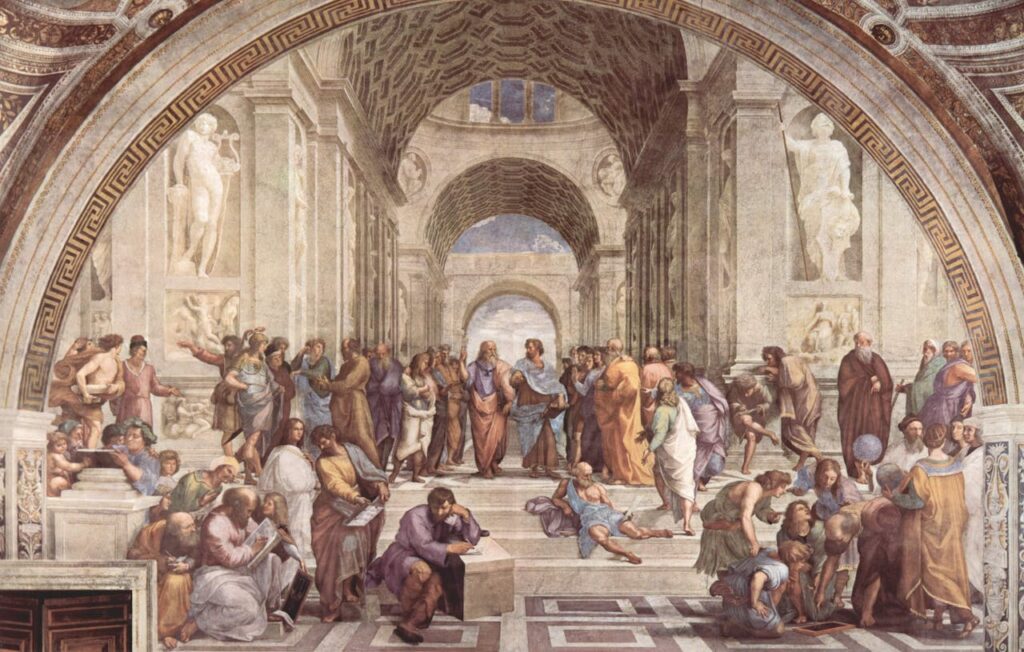
Explore & Play
Discover interesting topics and solve the accompanying crossword puzzle.
Philosopher Crossword | Explore Ideas of Great Thinkers
Table of Contents
Welcome to our exploration of philosophical ideas! To enhance your understanding, we encourage you to start with the Philosopher crossword, where you can engage with the names and concepts of influential thinkers. If you’re not yet familiar with this topic, feel free to read the article first and then return to the crossword for a fun way to reinforce your knowledge. Enjoy your journey into the world of philosophy!
Philosopher Crossword
You can either fill in the crossword puzzle directly on this page or click the button in the bottom right corner to print it for free.

The Influence of Ancient Philosophers on Modern Thought
Philosophy, the pursuit of wisdom and knowledge, has been profoundly shaped by the contributions of various thinkers throughout history. From ancient Greece to contemporary times, philosophers have grappled with fundamental questions about existence, ethics, and the nature of reality. This article explores the enduring influence of these great minds, weaving together their ideas and showing how they continue to inform modern philosophical discourse. Along the way, we will reference a crossword puzzle featuring some of these influential philosophers, offering a fun way to engage with their contributions.
I. Ancient Foundations: The Birth of Philosophical Thought
The origins of philosophical thought can be traced back to ancient civilizations, where the quest for knowledge and understanding began to flourish. Ancient philosophers laid the groundwork for various branches of philosophy, influencing ethics, metaphysics, epistemology, and political theory.
A. The Pre-Socratics: Seeking the Fundamental Principles of Nature
Before Socrates, a group of thinkers known as the Pre-Socratics emerged, primarily in ancient Greece. Figures such as Thales, Anaximander, and Heraclitus sought to explain the nature of the universe without recourse to mythology. They posed questions about the fundamental substance of reality, exploring concepts like change and permanence. For instance, Heraclitus famously stated that “everything flows,” highlighting the idea that change is the only constant in life.
B. Socrates: The Father of Western Philosophy
Socrates, often regarded as the father of Western philosophy, shifted the focus of philosophical inquiry from the cosmos to human existence. He emphasized the importance of ethics and the examined life, famously declaring that “the unexamined life is not worth living.” Through his dialectical method, known as the Socratic method, he encouraged critical thinking and self-reflection, laying the groundwork for future philosophical discourse.
C. Plato and Aristotle: Foundations of Western Thought
Plato, a student of Socrates, expanded upon his teacher’s ideas by establishing the Theory of Forms, which posited that non-material abstract forms are the most accurate reality. His works, such as “The Republic,” explored justice, the ideal state, and the nature of knowledge.
Aristotle, a student of Plato, took a different approach, emphasizing empirical observation and categorization of knowledge. He made significant contributions to numerous fields, including ethics, metaphysics, logic, and biology. His concept of virtue ethics, which focuses on character and the pursuit of a good life, remains influential in contemporary moral philosophy.
II. Eastern Philosophical Traditions
While Western philosophy has its roots in ancient Greece, Eastern philosophical traditions developed independently and offered rich insights into the nature of existence, ethics, and the cosmos. Key philosophies include Confucianism, Daoism, Buddhism, and Hinduism, each contributing unique perspectives.
A. Confucianism: Ethics and Social Harmony
Confucius (Kong Fuzi) emphasized the importance of morality, social relationships, and governance. His teachings centered around the concept of Ren (benevolence) and the significance of filial piety, advocating for a harmonious society built on respect, loyalty, and moral integrity. Confucianism profoundly shaped Chinese culture, emphasizing education, self-cultivation, and the importance of ethical leadership.
B. Daoism: Harmony with Nature
In contrast to Confucianism, Daoism (Taoism), attributed to Laozi, advocates for living in harmony with the Dao (the Way), an underlying principle of the universe. Daoist philosophy emphasizes simplicity, humility, and the interconnectedness of all life. The Dao De Jing, a foundational text of Daoism, encourages individuals to align themselves with the natural flow of life, fostering a sense of peace and balance.
C. Buddhism: The Path to Enlightenment
Buddhism, founded by Siddhartha Gautama (the Buddha), presents a unique approach to understanding suffering and the nature of existence. Central to Buddhist thought are the Four Noble Truths, which outline the nature of suffering and the path to liberation through the Eightfold Path. Buddhism emphasizes mindfulness, compassion, and the impermanence of life, providing valuable insights into ethical living and personal transformation.
III. The Medieval Synthesis
The medieval period marked a crucial turning point in the history of philosophy, characterized by the synthesis of ancient philosophical thought with religious doctrines, particularly in Christianity, Islam, and Judaism.
A. Christian Philosophy: Integrating Faith and Reason
Medieval philosophers, such as Augustine of Hippo and Thomas Aquinas, sought to reconcile faith with reason. Augustine emphasized the importance of divine revelation and the role of the human mind in understanding God. His works, particularly “Confessions” and “City of God,” explored the nature of sin, grace, and the pursuit of truth.
Thomas Aquinas, a prominent theologian and philosopher, synthesized Aristotelian philosophy with Christian theology in his magnum opus, “Summa Theologica.” He argued that reason and faith are compatible, providing philosophical arguments for the existence of God and exploring ethical principles rooted in natural law.
B. Islamic Philosophy: The Golden Age of Reason
During the medieval period, Islamic scholars played a pivotal role in preserving and advancing philosophical thought. Thinkers like Avicenna (Ibn Sina) and Averroes (Ibn Rushd) engaged with Greek philosophy, particularly Aristotle, and contributed significantly to metaphysics and ethics. Avicenna’s works on the nature of the soul and existence influenced both Islamic and Christian thought, while Averroes emphasized the importance of reason in understanding faith.
C. Jewish Philosophy: Maimonides and the Synthesis of Traditions
Maimonides (Rabbi Moses ben Maimon) emerged as a key figure in Jewish philosophy during the medieval period. His work “Guide for the Perplexed” sought to address the tensions between faith and reason, emphasizing the importance of philosophical inquiry in understanding Jewish beliefs. Maimonides drew on Aristotelian thought while addressing theological issues, advocating for a rational understanding of God and the nature of existence.
IV. The Enlightenment: Reason and Individualism
The Enlightenment, a cultural and intellectual movement that flourished in the 17th and 18th centuries, marked a significant shift in human thought. Centered on reason, individualism, and empirical evidence, this period laid the groundwork for modern philosophy, science, and political theory.
A. The Role of Reason in Enlightenment Thought
Philosophers of the Enlightenment championed reason as the primary source of authority and legitimacy. They believed that human beings could use rational thought to understand and improve their lives. This emphasis on reason led to a questioning of traditional doctrines and institutions, including the monarchy and the church.
Immanuel Kant, one of the leading figures of the Enlightenment, articulated the importance of autonomy and rationality in his essay “What Is Enlightenment?” He argued that individuals should think for themselves rather than blindly follow authority. Kant’s philosophy emphasized the significance of moral law derived from reason, leading to his categorical imperative, which states that one should act only according to maxims that could be universally applied.
B. Individualism and the Birth of Liberal Thought
The Enlightenment fostered a sense of individualism, promoting the idea that individuals possess inherent rights and should be free to pursue their own happiness. This notion laid the foundation for liberal political thought, which emphasized personal freedoms and the protection of individual rights.
John Locke, often referred to as the father of liberalism, contributed significantly to this discourse. His theories of government, particularly the idea of the social contract and natural rights (life, liberty, and property), influenced democratic movements worldwide. Locke argued that governments derive their authority from the consent of the governed, setting the stage for modern democracy and human rights.
C. Scientific Advancements and Philosophical Implications
The Enlightenment also witnessed significant advancements in science, which philosophers integrated into their theories. The scientific method, emphasizing observation and experimentation, reshaped how knowledge was pursued and validated. Thinkers like René Descartes and David Hume contributed to this new paradigm by questioning the nature of knowledge, reality, and the limits of human understanding.
Descartes’ famous assertion “Cogito, ergo sum” (I think, therefore I am) encapsulated the Enlightenment’s emphasis on self-awareness and reason as the basis of knowledge. Hume, on the other hand, challenged the certainty of knowledge, emphasizing empiricism and the role of experience in shaping human understanding.
V. The Rise of Modern Philosophy
As the Enlightenment gave way to the modern era, philosophy evolved in response to changing societal, scientific, and political landscapes. The 19th century saw the emergence of various philosophical movements that further explored human existence, knowledge, and ethics.
A. German Idealism: The Search for Absolute Knowledge
German Idealism, prominently represented by philosophers such as Georg Wilhelm Friedrich Hegel and Johann Gottlieb Fichte, sought to explore the nature of reality and consciousness. Hegel’s dialectical method emphasized the development of ideas through a process of thesis, antithesis, and synthesis, leading to the realization of absolute knowledge.
Hegel believed that history is a rational process where the unfolding of human consciousness leads to greater freedom and self-realization. His ideas profoundly influenced later philosophical movements, including existentialism and Marxism.
B. Utilitarianism: The Ethical Framework of Consequentialism
Utilitarianism emerged as a significant ethical theory during the modern philosophical period, primarily articulated by Jeremy Bentham and John Stuart Mill. This framework posits that the morality of an action is determined by its consequences, specifically the degree to which it promotes happiness or reduces suffering.
Bentham’s principle of utility advocated for the greatest good for the greatest number, urging policymakers to consider the overall happiness of society. Mill expanded upon this idea, emphasizing qualitative differences in pleasures and advocating for individual rights within a utilitarian framework. This approach laid the foundation for contemporary discussions on ethics and social policy.
C. Marxism: A Critical Perspective on Society and Economics
Karl Marx introduced a revolutionary perspective on society and economics that critiqued capitalism and proposed a framework for understanding class struggle. Marx’s dialectical materialism posited that societal change occurs through conflicts between opposing forces, particularly between the bourgeoisie (capitalist class) and the proletariat (working class).
In works like “The Communist Manifesto” and “Das Kapital,” Marx analyzed the dynamics of capitalism, class relations, and the implications for human freedom and equality. His ideas have had a lasting impact on political philosophy and social theory, influencing various movements for social justice and reform.
VI. Existentialism and Human Experience
The 20th century witnessed the rise of existentialism, a philosophical movement that emphasized individual existence, freedom, and the search for meaning in a seemingly indifferent universe. Existentialist thinkers grappled with the complexities of human experience and the challenges of navigating a world without inherent purpose.
A. Key Figures: Sartre, Camus, and Heidegger
Jean-Paul Sartre, one of the most prominent existentialist philosophers, asserted that existence precedes essence, meaning that individuals are not born with predetermined purposes but must create their own meaning through choices and actions. Sartre’s works, such as “Being and Nothingness,” explored concepts of freedom, responsibility, and the anguish that accompanies human existence.
Albert Camus, often associated with existentialism, examined the absurdity of life in works like “The Myth of Sisyphus.” He argued that individuals must confront the inherent meaninglessness of existence and find their own purpose despite this absurdity. Camus emphasized the importance of rebellion against nihilism, advocating for a life lived with passion and integrity.
Martin Heidegger, while not strictly an existentialist, contributed significantly to existential thought through his exploration of Being and human existence. His work “Being and Time” delves into the nature of existence, authenticity, and the importance of acknowledging one’s mortality. Heidegger’s insights influenced existentialist thinkers and continue to resonate in contemporary philosophy.
B. The Search for Authenticity in a Complex World
Existentialist philosophy emphasizes the pursuit of authenticity, encouraging individuals to confront societal norms and expectations in order to live genuinely. This search for authenticity often involves embracing freedom and accepting the inherent uncertainty of life.
Sartre’s notion of “bad faith” illustrates the struggle against self-deception and conformity, urging individuals to take responsibility for their choices and to define their own existence. Existentialist thought challenges individuals to seek meaning and fulfillment in an unpredictable world, advocating for self-discovery and personal agency.
C. Existentialism’s Impact on Literature and the Arts
Existentialism transcended philosophy, significantly influencing literature, art, and psychology. Writers like Franz Kafka, Fyodor Dostoevsky, and Virginia Woolf explored existential themes in their works, delving into the complexities of human consciousness, identity, and the search for meaning.
The impact of existentialist thought can also be seen in various art movements, including Surrealism and Absurdism, which challenged conventional representations of reality. By questioning established norms and exploring the human condition, existentialist artists and writers contributed to a richer understanding of existence.
VII. Contemporary Philosophy: Engaging with the Past
A. John Stuart Mill: Utilitarianism and Liberty
Mill’s utilitarian approach reshaped discussions on ethics and social justice. In his influential work, Utilitarianism, Mill argues that actions should be judged based on their consequences, specifically the promotion of happiness and the reduction of suffering. His commitment to individual liberty and social reform laid the groundwork for liberal thought, emphasizing the importance of personal freedom in a just society. Mill’s ideas continue to inform contemporary debates on ethics, politics, and human rights.
B. John Rawls: Justice as Fairness
Rawls’s theory of justice offers a framework for understanding equity and fairness in society. In A Theory of Justice, Rawls introduces the concept of the “original position,” where individuals design a just society from behind a veil of ignorance, unaware of their own social status or personal characteristics. This thought experiment leads to the principles of equal basic rights and social and economic inequalities being arranged to benefit the least advantaged. Rawls’s work has significantly influenced political philosophy and discussions on justice and equality.
VIII. The Ongoing Dialogue: Philosophy Today
A. The Relevance of Philosophy in Modern Society
Today, philosophy remains a vital tool for navigating ethical dilemmas and societal challenges. The ideas of ancient and modern philosophers continue to shape our understanding of morality, politics, and the human condition. As we grapple with complex issues such as technology, environmental ethics, and social justice, philosophical inquiry provides a framework for critical thinking and reflection.
B. Engaging with Philosophical Ideas Through Puzzles
One engaging way to delve into philosophical concepts is through puzzles like crosswords. These activities challenge our minds while allowing us to explore the contributions of notable philosophers. By engaging with philosophical terminology and ideas in a playful manner, we can deepen our understanding and appreciation for these thinkers and their legacies.
Conclusion: The Enduring Legacy of Philosophy
The exploration of ancient and modern philosophers reveals a rich tapestry of ideas that continue to influence contemporary thought. From Socrates to Sartre, each thinker has contributed unique insights that shape our understanding of ethics, existence, and human relationships. As we reflect on these profound ideas, we are reminded of the importance of philosophical inquiry in navigating our complex world.
If you’re intrigued by these philosophical ideas and wish to test your knowledge, try your hand at the crossword puzzle featuring the names of these influential thinkers. Engaging with philosophy can be both fun and enlightening!
Share to...
I hope you enjoy the content.
Want to receive our daily crossword puzzle or article? Subscribe!
You may also be interested in
Share to…
Want to receive our daily crossword puzzle?
-
Jigsaw Puzzles
Elegant Pig Zodiac Watercolor Jigsaw Puzzle 250 | 300 | 500 Brikker
kr 348,00 – kr 439,00Price range: kr 348,00 through kr 439,00 Select options This product has multiple variants. The options may be chosen on the product page -
Jigsaw Puzzles
Zodiac Ink Art Puzzle: The Playful Monkey 250 | 300 | 500 Pieces
kr 348,00 – kr 439,00Price range: kr 348,00 through kr 439,00 Select options This product has multiple variants. The options may be chosen on the product page -
Jigsaw Puzzles
Majestic Unicorn Watercolor Puzzle 250 | 300 | 500 Brikker
kr 348,00 – kr 439,00Price range: kr 348,00 through kr 439,00 Select options This product has multiple variants. The options may be chosen on the product page

















